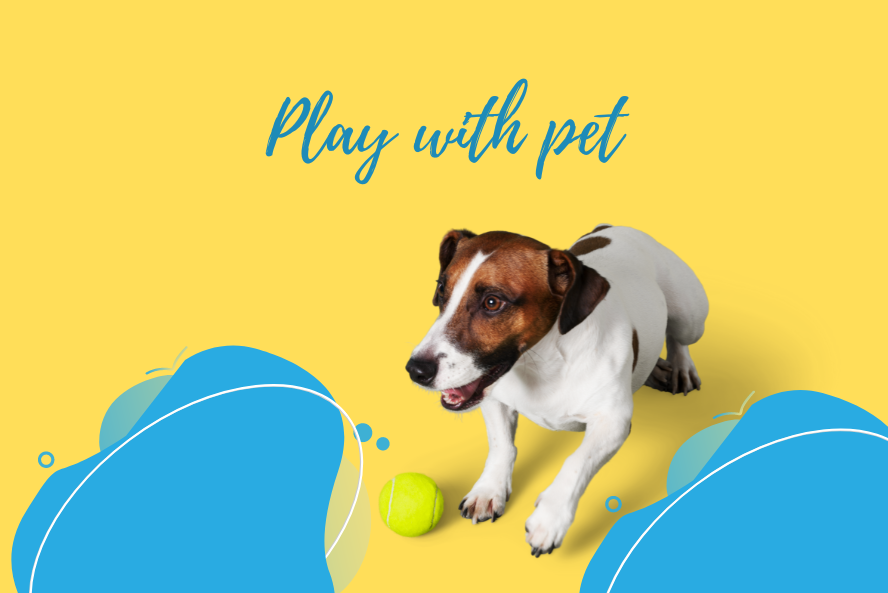The Importance of Play for Dogs: Enhancing Health and Happiness

Playtime is not just about having fun; it is a critical aspect of a dog's physical, mental, and emotional health. Understanding the importance of play for dogs can help pet owners provide a fulfilling and joyful life for their furry friends.
Physical Benefits
- Exercise and Fitness
Play provides dogs with essential physical exercise, helping to keep them fit and healthy. Activities like fetch, tug-of-war, and running are excellent ways to burn off energy and maintain a healthy weight. For example, a game of fetch can have your dog running and leaping, giving them a full-body workout. Regular play can prevent obesity and associated health issues, keeping your dog agile and active.
- Motor Skill Development
Especially in puppies, play is vital for developing motor skills. Through activities like chasing, pouncing, and wrestling, dogs learn to control their movements, improving coordination and balance. For instance, a puppy playing with a ball learns to time its movements and develop better paw-eye coordination.
Mental Stimulation
- Cognitive Benefits
Engaging in play stimulates a dog's mind. Games that involve problem-solving, such as puzzle toys or hide-and-seek, challenge their cognitive abilities and keep their brains sharp. A game of hide-and-seek can teach a dog to use its sense of smell and memory to find hidden treats, providing mental exercise that keeps them sharp and engaged.
- Learning and Training
Playtime is an excellent opportunity for training. Interactive games can teach dogs to follow commands, improve their manners, and enhance their impulse control. For example, playing tug-of-war with the rule of releasing on command can teach dogs obedience and self-control.
Emotional and Social Benefits
- Stress Relief
Play acts as a natural stress reliever for dogs. Engaging in fun activities releases endorphins, which help to reduce anxiety and promote relaxation. This is particularly beneficial for dogs who are prone to stress or have been through traumatic experiences. For instance, a game of fetch in the park can distract a dog from anxiety-inducing environments, making them feel more at ease.
- Bonding and Socialization
Playing with your dog strengthens the bond between you and your pet. It fosters trust and communication, making your relationship more rewarding. Additionally, play with other dogs is crucial for socialization. Well-socialized dogs are generally happier and better adjusted, knowing how to interact appropriately with other canines. Organizing playdates with other dogs can teach them valuable social skills.
Behavioural Improvements
- Reducing Behavioural Issues
A lack of play can lead to behavioural problems such as aggression, anxiety, and destructive habits. Regular play provides an outlet for excess energy and mental engagement, reducing the likelihood of such issues. It's an effective way to keep dogs calm and content. For instance, a dog that engages in regular play is less likely to chew on furniture out of boredom.
- Positive Reinforcement
Using play as a reward in training can reinforce good behaviour. Dogs are more likely to repeat actions that lead to enjoyable outcomes, making play a powerful tool in behaviour modification. Positive interactions during playtime help dogs understand acceptable behaviour and social cues. For example, rewarding a dog with a game of tug after they successfully perform a trick reinforces their learning.
Practical Tips for Safe and Effective Play
- Choose Appropriate Toys
Select toys that are safe and suitable for your dog's size and chewing strength. Avoid toys that can be easily swallowed or broken into sharp pieces.
- Monitor Playtime
Always supervise your dog during play to prevent accidents and intervene if play becomes too rough. Ensure play sessions are fun and safe for all participants.
- Variety in Activities
Incorporate a mix of physical and mental activities to keep your dog engaged. From fetch and tug-of-war to puzzle toys and training games, variety ensures your dog enjoys a well-rounded play experience.
Conclusion
Play is a vital component of a dog's life, contributing significantly to their physical health, mental sharpness, and emotional well-being. By incorporating regular, varied play sessions, pet owners can ensure their dogs lead happy, healthy, and well-adjusted lives. So, grab a toy and spend some quality playtime with your furry friend today!






